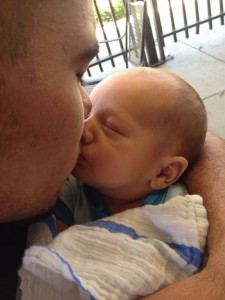 “Are you pregnant, scared, with no one to talk to? We can help you with finances, medical expenses and secure a great home for your baby. There are many loving families who can provide a stable home with all the advantages for a child.”
“Are you pregnant, scared, with no one to talk to? We can help you with finances, medical expenses and secure a great home for your baby. There are many loving families who can provide a stable home with all the advantages for a child.”
This message simulates the messages that lure mothers who find themselves in an unplanned pregnancy. A “loving and right” choice offers the mom a way of “redeeming” herself in this untimely circumstance. Unfortunately, while the websites and billboards of adoption agencies make adoption sound like a panacea for solving the dilemma of an unplanned pregnancy, the details of the future fail to surface in the information before a decision is made.
A family is chosen and programming reinforced of all the “right and loving” messages that follow such an “unselfish” decision. While these statements ring true before all the negotiations have completed and before the baby has been born, it is the time after the birth that has not been truthfully and forcefully presented in concert with the other information given.
Story after story continuously surfaces of the trauma of placing a child in an adoption. The trauma affects the natural mom first because the mom is developmentally able to verbalize or communicate the pain, the fear, the overwhelming urge to know how her baby is and what is happening with her baby. The baby, however, must live a life without being able to fully embrace the God-like decision making that took him or her from a familiar human with whom s/he bonded for nine months to a family of strangers.
What ethical considerations must adoption agencies and adoption representatives establish to know that an adoption is happening in the best interest of all parties but particularly for the baby with no voice? How can a prospective adoptive family know an agency is ethical and truly completing adoptions that are win/win placements?
These thought provoking questions necessarily evoke an emotional response. No one wants to believe that a child placed for adoption really didn’t need a new family. No one wants to believe that a natural mother ever relinquishes a child and regrets it the rest of her life. Nor does anyone want to believe that the mother didn’t go on with her life like she was promised she would do. After all, she will know her baby is cared for and healthy. Why should she give another thought to the child she carried for 9 months, labored to birth, or survived a c-section to give life?
Adoption loss does not establish a reason to celebrate. The idea of celebrating the loss of family because another family is gaining that lost member doesn’t compute. And yet, how many adoption celebrations happen everyday? Does adoption create a home for a child without a home, absolutely! The adoptions that occur when a child already has a home and a family are suspect from the beginning. The agency ads, billboards, and other social media preying on the emotions of a circumstantially marginalized population seems inhumane.
Celebrate life, celebrate family. Adopt a family by adding to the family, not by taking away. Turn this social phenomena around by helping families and supporting those children within the family.
Feel free to comment as your comments can be supported by research. #stopunethicaladoptions
Couldn’t agree more!
Absolutely! The pain of adoption loss has been kept so hidden that most people are unaware of its depth. Birth mothers are for the most part invisible. Ask yourself how many you know? That girl you went to high school with who disappeared one day? Your college classmate who dropped out of school? How many of those few you may remember have you ever talked to years later? How many birth mothers have you EVER talked to? Then there are the adoptees. The unhappy ones have learned to keep it to themselves, or perhaps when they’re old enough they just drift away from their family. The “happy” ones have perfected the art of fitting in (or trying to), being grateful (or else be accused of being bitter), and are reluctant to do anything to upset the adoptive parents–like reconnect with their birth family. They’ve been told over and over that the parents who take care of you, feed you, and take you to soccer practice are your “real” parents. It would be churlish to resent them, and if you love them, you certainly don’t want to hurt them. And what if they reject you? A second rejection might just kill you, so better play it safe, smile, and keep it all together. Appearances can be deceiving, and with adoption they usually are. I’ve had so many people tell me about their cousin who is adopted or their aunt who adopted children from wherever, and everyone is oh, so happy. Even when an adoption isn’t working, so much has been invested in it that no one wants to tell the truth about it. The whole adoption enterprise is founded on lies, deception, self-deception, grief, loss, and trauma. There is NO adoption without trauma. Adoption may be necessary, just as open-heart surgery may be necessary, but no one celebrates the need for a heart operation. We work to prevent them, and we should work to prevent adoptions just as assiduously.
Fully agree. If you want to care for a child, help protect the child’s family unit. Together, they are stronger.